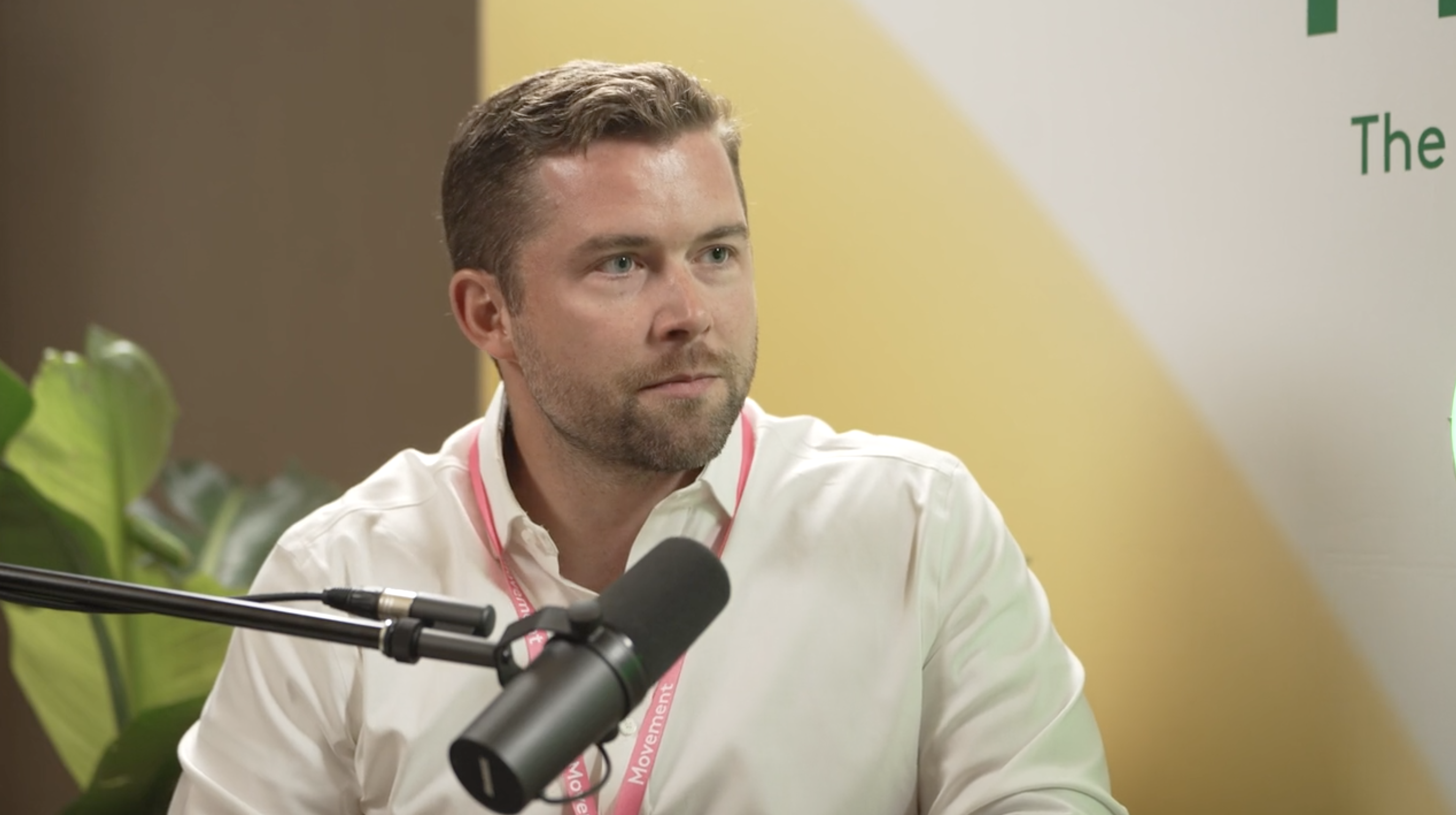Talking With Zack Papalia of Brown & Brown
Movement 2023: On Air
- Hinge Health Learning Center
- Articles
- Movement 2023 On Air: Zack Papalia of Brown & Brown
As a senior population health consultant with Brown and Brown, one of the country's largest independent insurance brokerages, Zack Papalia is on the same page with his clients: Spend less and get better outcomes.
How that is best done can take some discussion, however.
After reviewing all of the research on the effectiveness of digital musculoskeletal (MSK) care, Papalia doesn't just think it could be a worthwhile solution—he's sure of it. And he feels the time he spends educating his clients about what he has learned is well spent.
Hear what else he had to say when he joined Hinge Health Director of Content Marketing Jenny Sucov on the Movement 2023 On Air podcast.
Jenny Sucov (JS): You were at the Movement conference last year. What made you come back?
Zack Papalia (ZP): I just think there's incredible value in the virtual delivery of musculoskeletal (MSK) therapies. I think there's definitely been an overpromise across health care in terms of what virtual can deliver on. But I really think musculoskeletal is one area where it can.
It's not the only answer to the question, but it's a key piece of the puzzle. And I don't think you can solve for MSK without quality virtual access.
JS: Do your clients feel the same way about digital MSK care as you do?
ZP: I believe they are getting there. I take it upon myself to help explain the problem, the solution, and the impact that this can provide.
And slowly but surely, I think they're seeing the light. And I think it's proving its value time and again, particularly with Hinge Health.
JS: What are some of the biggest hurdles for your clients when it comes to implementing a digital MSK care solution?
ZP: I think it's just the traditional thinking about what physical therapy is: You're going three times a week to your local physical therapist. You're in the office for 60 to 90 minutes. That's just how people have gone through PT forever.
I also have to try to explain how the virtual model can deliver high-quality care while eliminating the geographic, temporal, and financial barriers to care, particularly as more groups move hybrid and have a dispersed employee population.
It's resonating, but it just takes time and effort to break down and break through the traditional model of treatment: Six treatment sessions, go get a cortisone shot. Eventually you're getting surgery. That's 'how it's done.'
But it doesn't have to be that way anymore.
I also think a lot of employer groups were inundated with virtual solutions at the onset of COVID and throughout the pandemic. And, like I said, a lot of them overpromised on what they could deliver. Now we're seeing backlash. Employers are saying, 'Let's hit the brakes, take a breath. We invested a lot in the virtual space. We're not necessarily seeing the return.'
So, it's important to be able to differentiate what does work, what doesn't work, and what's a legitimate way to deliver care.
JS: How do you evaluate ROI? How do you tell your clients to evaluate it?
ZP: I think it's a really fine line to walk. Particularly with musculoskeletal health and wellbeing, you—from a buyer perspective, from an employer perspective—want the hard-dollar ROI. I think this is where Hinge Health can really differentiate itself from a methodology, research, and quantification perspective.
But from a more holistic view of MSK, you have to be able to articulate and understand the broader impact, whether it's the crossover with behavioral health, absenteeism, presenteeism, productivity, general quality of life. It's much harder to quantify those factors.
So, you kind of have to start the explanation in the pitch with the hard-dollar ROI while also educating on the soft-dollar, holistic impact more broadly.
These responses have been edited for clarity and brevity.
